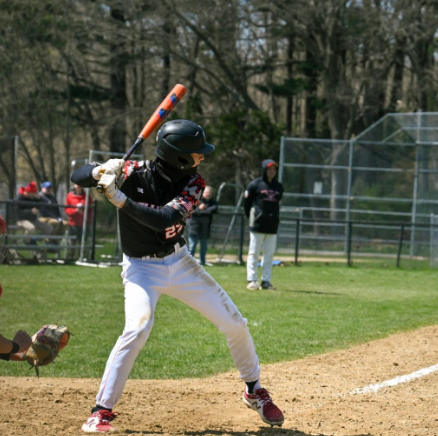Over the years, the number of club teams such as basketball, soccer, lacrosse, and hockey has increased for several reasons. This has also had a tremendous impact on scholastic sports. These club teams offer an advantage to many students that school programs may not offer, so students look to private training to develop their skills or seek a scholarship to college through that sport. But this is a complicated and controversial topic with both positive and negative aspects to them.
There are many positive aspects to club teams. Primarily, they allow students to train outside of season on a sport they feel passionate about. It also helps high school coaches field more competitive teams with players who play year-round. Because the high school cannot hold private club teams due to policies, it can create a competitive issue. Many of Wellesley’s greatest rivals hold club teams through private school systems, so their players often train year-round, holding Wellesley at a disadvantage.
While club teams can help provide a competitive edge to any scholastic team, some coaches point out the drawbacks to playing one sport year-round. Mr. Robert Buffis, the athletic trainer at the high school sees both sides. “Individual sports outside of school definitely can be a good thing, but you obviously don’t want to overdo it… you can be overloading the body, subjecting yourself to injury, and not giving yourself enough free time,” he said. Buffis explained that while club teams can be good for a student’s development in a sport, they can also be destructive and cause more harm than good in their academics, health, social life, and more. “I always recommend playing for the school. That’s usually the best experience,” he said.
Many coaches feel that club teams can improve athlete skills, which is why so many student-athletes participate in them. At the end of the day, that’s the ultimate and original goal of club teams, but it can quickly become an unethical, money-making business.“They’re selling the fact that you have to play year-round and you have to do this to go to college when quite frankly, you don’t, ” said Mr. John Brown, the Director of the Athletics at the high school. He further explains how tryouts alone can make club teams hundreds of dollars, so just imagine the money club teams make year-round.
Additionally, with the rise of club teams, there is more pressure on student-athletes to perform outside of the season. There are also concerns about whether it is fair to students who cannot afford to take up private training clubs and therefore are at a disadvantage. Over the past few years, a common misconception has formed that students must be a part of a club team or play their chosen sport all year round to play in college. This isn’t true.
In fact, Brown encourages students to try other sports during the school seasons as it can give students more exposure to a variety of sports, which develops different skills. “Oftentimes kids are burnt out from specific sports far too early and don’t get the enjoyment that they should,” said Brown. “College coaches love multiple sport athletes’.
Tate Bannish ’24, a baseball player at the high school, and a Division 1 college prospect, has played for the Nokona Baseball program and has “enjoyed every second [he has] spent in the program”. He believes that they play a huge role in the development of young athletes, in the sport, and socially. “The relationships I have built with kids outside Wellesley will hopefully last me my entire life,” said Bannish.
He does, however, explain the negatives he has noticed from club teams. “The over obsession with recruiting in the world of club sports takes over in a sense and dilutes the quality of the actual baseball being played” This means that often players can be concerned with getting themselves recruited and doing well rather than supporting the team and enjoying the sport.
Club teams are an increasingly present concept, especially in our high school. And with its positive aspects also come negative aspects. At the end of the day, it depends on the goals of the athlete as well as the ethicality of the company/coach. It is definitely a topic that can get confusing and complicated but it is important to talk about, as it impacts the high school and its students tremendously.
“It’s beneficial to the kid, they get better at their sport. As long as they’re doing it for the right reasons,” says Brown.

